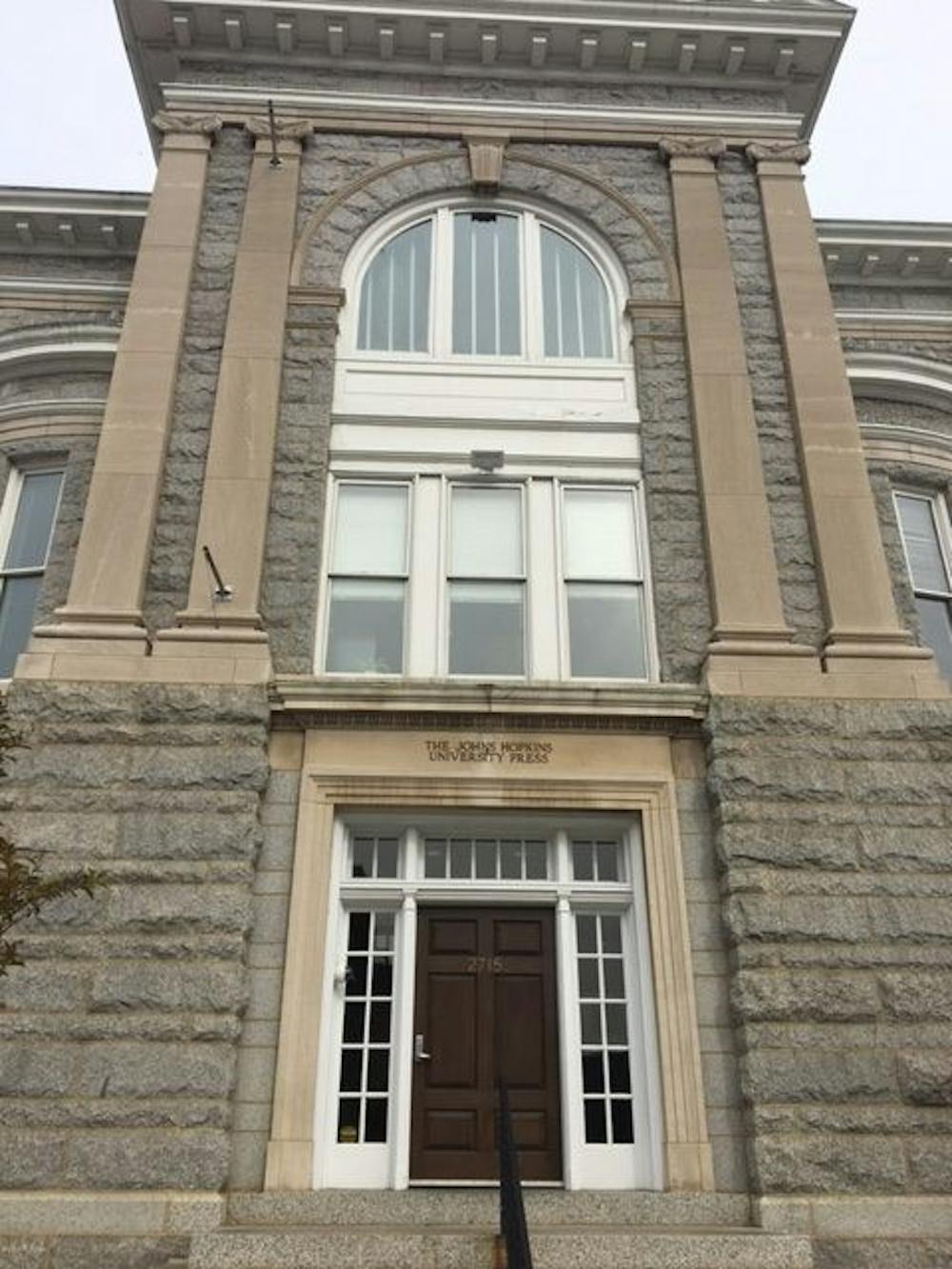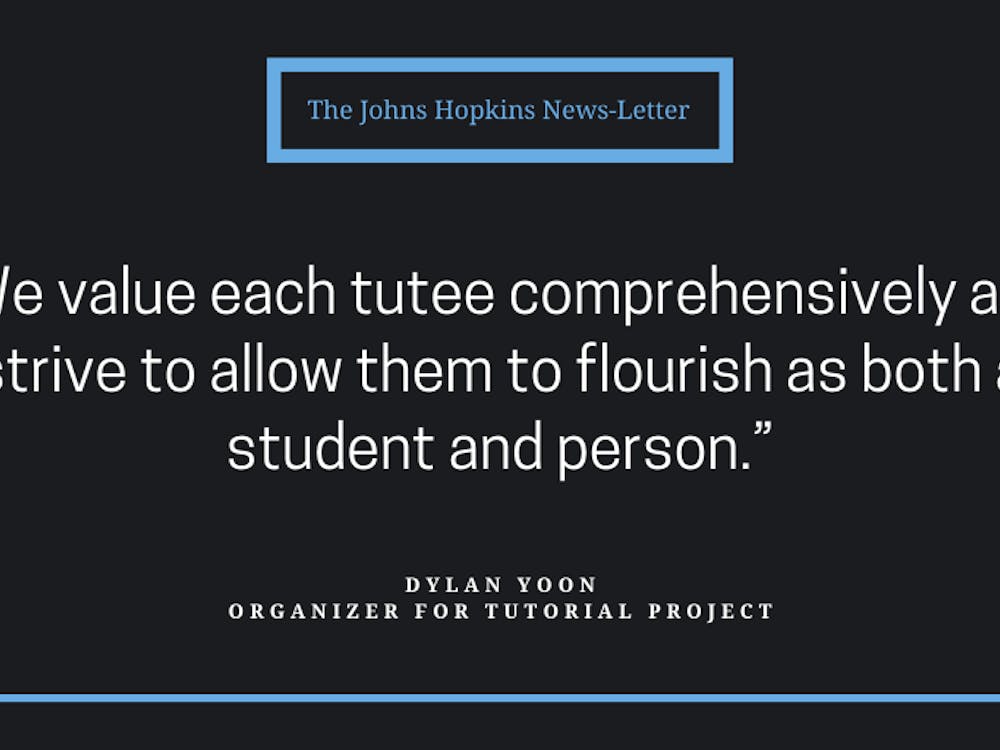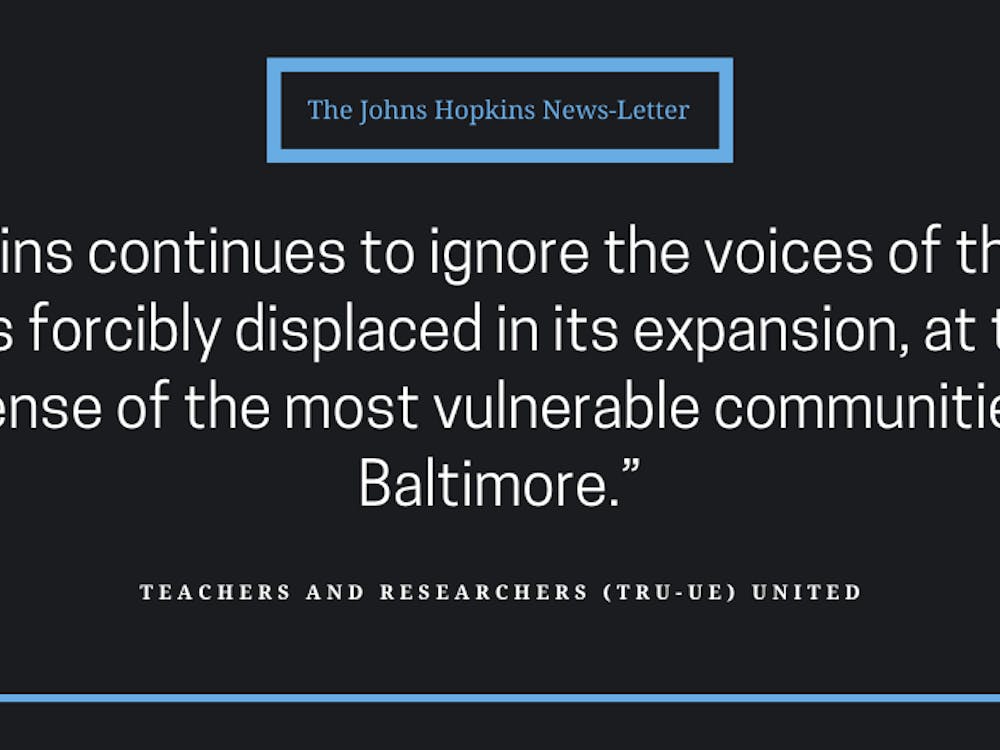The Johns Hopkins University Press, the oldest university press in the U.S., will be celebrating its 140th anniversary in 2018.
Founded in 1878 by Daniel Coit Gilman, the University’s first president, the Press has gone through a series of name changes over the years.
Founded as the Publication Agency, it changed its name to the Johns Hopkins Press before adopting its present-day name, the Johns Hopkins University Press.
According to the Press’ website, Gilman founded the Press based on his belief that it is a research university’s duty to share its knowledge and expertise with other scholars and professionals, as well as with the public.
The Press publishes print and digital copies of scholarly journals as well as books.
There are four main divisions of the Johns Hopkins University Press: journals, books, Project MUSE and Hopkins Fulfillment Services (HFS).
The first component, Journals Division, is the largest of any American university press and publishes 85 journals in various fields ranging from the arts and humanities to technology and medicine.
The second component, Books Division, publishes around 150 books every year internationally in an effort to connect scholars with educational institutions worldwide.
The third component, Project MUSE, a nonprofit organization and collaboration between the Press and the University’s Sheridan Libraries, was formed in 1995. It allows readers access to publications from all over the world through the Press’ online database. In January 2012 it launched a book collection.
MUSE focuses on providing content related to the humanities and social sciences. Furthermore, its digital journal collections have contributed to research at academic, public, special and school libraries all over the world.
Not only does the Press publish its own scholarly journals and books, but through its final component, HFS, the Press provides digital and print distribution to other university presses and institutions.
Gregory M. Britton, the editorial director of the Press, works to organize acquisition editors who select and edit the content that goes into the Press’ book publications.
He described the impact the Press has had on the rest of the world.
“The Press became a great way for scholars to communicate, domestically and internationally,” Britton said. “They shipped math journals from Baltimore to Oxford, Heidelberg [and] Paris and were just sharing ideas, long before any kind of digital distribution.”
Journals Publisher William M. Breichner directs all operations and departments within the Press’ Journals Division, including the acquisition of new publications and oversight of publishing services.
Breichner believes that one of the reasons the Press stands out is the staff’s dedication to excellence.
“I sense a great commitment to making sure that we uphold the high publishing standards which we’ve inherited,” Breichner wrote in an email to The News-Letter.
He commended people who have worked in the Press for their diligence and enthusiasm.
“Many people here work with a sense of passion to fulfill our publishing mission and to do the best possible job for the scholars who have entrusted [the Press] with the content they’ve created.”
Many Hopkins faculty members have published works with the Press, such as Matthew A. Crenson. Crenson is a Baltimore native and a professor emeritus in the political science department.
Since 1971, Crenson has published four out of his eight books with the University Press. His first book was The Un-Politics of Air Pollution: A Study of Non-Decisionmaking in the Cities. His other two books, The Federal Machine: Beginnings of Bureaucracy in Jacksonian America — co-authored with Benjamin Ginsberg, chair of the Center for Advanced Governmental Studies — and Downsizing Democracy: How America Sidelined Its Citizens and Privatized Its Public,were published in 1975 and 2002 respectively.
His most recent book published through the Press is Baltimore: A Political History,which was published this year.
In the book, Crenson explores Baltimore’s different neighborhoods and discusses the influence of politics on the city.
Crenson has been satisfied with his experiences with the Press.
“At first, I published with the Hopkins Press because they were close. After some bad experiences with other publishers, I came back to them because they were good,” he wrote in an email to The News-Letter.
Crenson explained that other publishers left him feeling unsatisfied. He stated that he has published books with an academic press, a foundation and a commercial press, but he felt comfortable and happy with the University Press.
“Hopkins has been great,” he wrote.
Senior Holly Tice first discovered the Press when she took a tour of the Press’ building, a renovated former church, with her “Introduction to Fiction” class.
Tice, who started out working for the Press as an intern in the Marketing Department, currently works in the Rights and Permissions Department.
“Book and journals of all types are everywhere in the office — lining the walls, stacked on desks and in little corners,” Tice wrote in an email to The News-Letter. “I love working in a place where I am literally surrounded by books.”
Breichner discussed how, with the rise of the digital age, publishers are seeing that young readers and students look toward the internet and online publishers for digital and free versions of scholarly journals and books.
Digitization has meant that everyone within the print industry, from publishers to newspapers, has had to adapt. With less money flowing in, the Press has had to work hard to remain afloat.
“I think it’s important to note that [the Press] is a business,” Breichner wrote.
He elaborated on how the Press is self-sufficient rather than dependant on subsidies from the University.
“We are required to pay our own way, and that I think has given us an advantage over other Press’s that are highly subsidized by their institutions,” Breichner wrote.
He feels that it is important for the Press to be conscious of how it compares to other university presses.
“We need to stay competitive. We can’t afford complacency and this has enabled us to keep our saws sharpened,”he wrote.
Britton explained that in the modern era, traditional publishers are competing not only with digital publishers but also with online publication platforms.
He noted that as each generation becomes more technologically advanced, it becomes harder to establish a focus on issues that are not important in the digital world.
“I don’t think we are competing with Oxford University Press or other scholarly publishers. Instead, we are competing with Facebook for readers’ attention,” Britton said.
He elaborated that the Press has the power to maintain its readers’ interest.
“If we do our job right, we can have an enormous impact on those fields by the books we pick.”
Crenson also expressed concern for the fate of print books in light of the digital age.
“I’m proud to be a Hopkins author, especially after the royal treatment that the Press has given me on my latest book. I do, however, worry about the future of books themselves,” he wrote.
Britton believes that though the goals of the Press have changed a number of times throughout its history, the principle upon which it was founded still stands true today.
“I think that if President Gilman were to be here today, he would be fascinated by the Internet, by MUSE and by the concept of digital books,” Britton said.
He says that despite developments such as the internet, the Press remains every bit as relevant as it did upon its founding in 1878.
“The original idea that started this place could never have been more important than it is now.”























Please note All comments are eligible for publication in The News-Letter.